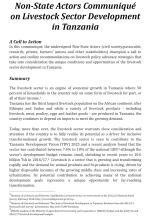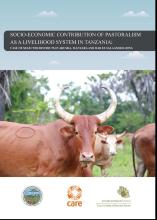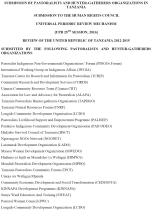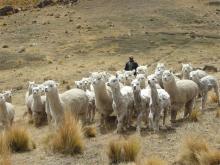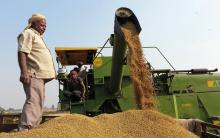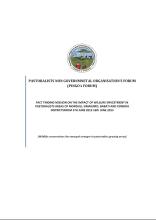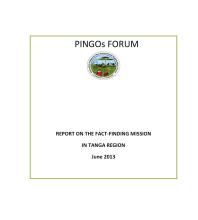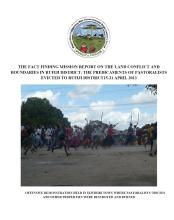Land Library
Welcome to the Land Portal Library. Explore our vast collection of open-access resources (over 74,000) including reports, journal articles, research papers, peer-reviewed publications, legal documents, videos and much more.
/ library resources
Showing items 1 through 9 of 17.In this communiqué, the undersigned Non-State Actors (civil society,pastoralist, research, private, farmers’ unions and other stakeholders) champion a call to action and outline recommendations on livestock policy advocacy strategies that take into consideration the unique conditions and opportun
Tanzania is endowed with numerous resources including livestock. It is number three country in Africa in terms of livestock population after Ethiopia and Sudan.
This is a stakeholder submission prepared by a coalition of 24 pastoralists and huntergatherers’ Civil Society Organizations (CSOs), forums, networks and groups.
Formal land titles are rare in pastoral communities around the world. In the past, this presented hardly any problems, since pastoral land was seen as of little use by most outsiders.
The former Soviet Central Asian republics have undergone de-intensification of their livestock sectors, resulting in an increased reliance on natural pastures. Property rights systems are key to the sustainable management of this resource.
Pastoralism – the predominant form of livestock keeping in the Horn of Africa – has always been a source of disputes and tensions in the region.
This fact finding is the fulfilment of PINGO’s Forum daily activities for inquiring the challenges facing pastoralists communities. In this fact finding, we will look at the impact of wildlife conservations in pastoralists areas.
This is a report of a fact-finding mission which took place in Tanga Region in June 2013. It aims to map the situation of pastoralists and the challenges they face in three districts of Tanga Region namely Handeni, Korogwe and Pangani.
This fact finding mission had been organised to investigate the challenges facing pastoralists in Rufiji District, the challenges which have been defined as the source of conflict in this district.

